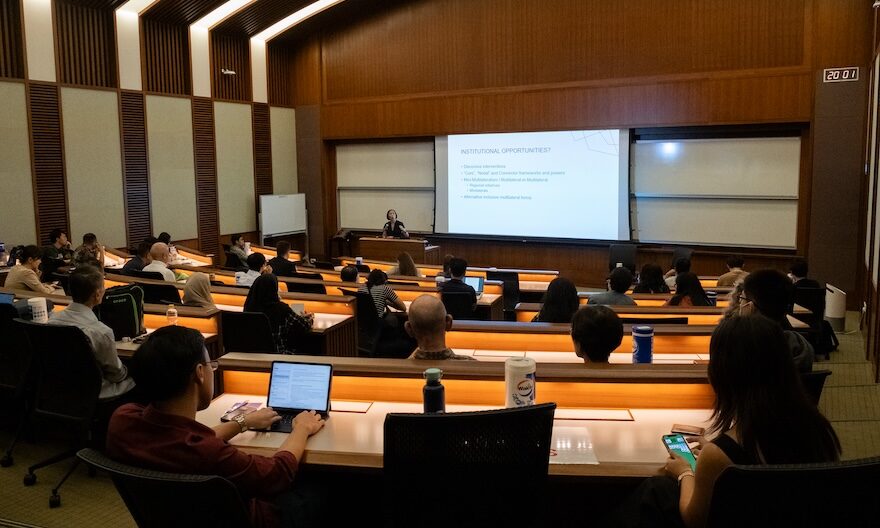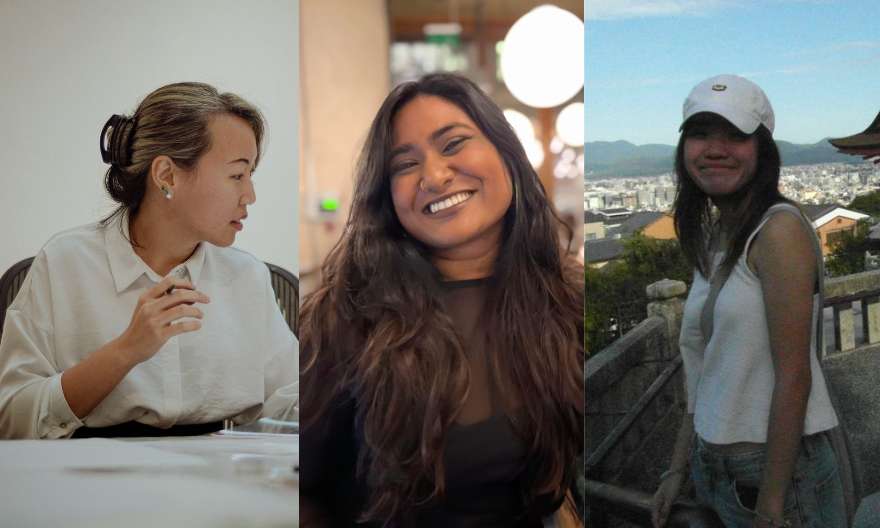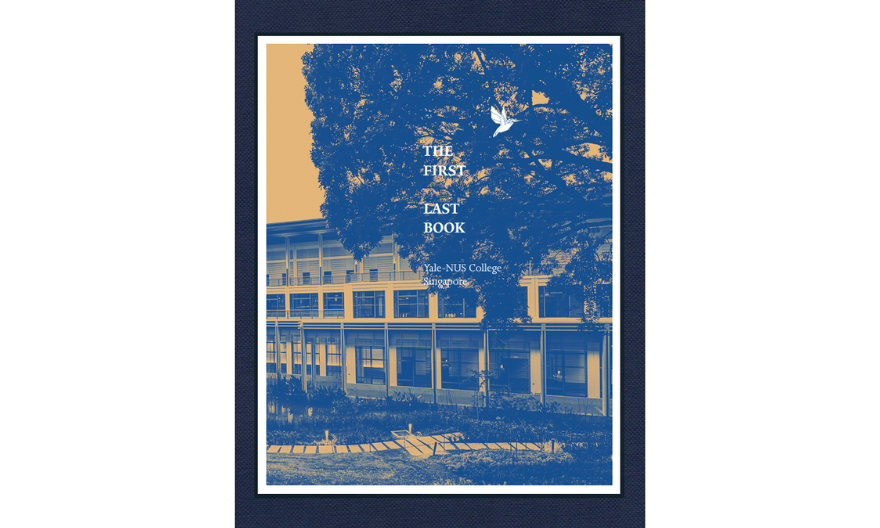Yale-NUS College’s symposium on lessons, challenges, and successes of global liberal arts education
The symposium featured scholars from various universities across Asia
The new semester commenced at Yale-NUS College with the highly anticipated symposium: ‘Learning from Global Liberal Arts Education, Innovation and Resilience’. The three-day event took place from 11-13 January 2024, and was attended by some 300 participants who participated in-person and via Zoom.
The symposium explored the lessons, challenges, and successes of a global liberal arts education in today’s volatile environment. It brought together a diverse group of educators representing different experiences and models of the global liberal arts education with a particular focus on Asian perspectives. Three themes anchored the symposium:
- Liberal arts education in a time of geopolitical risk: How do young, internationally focused institutions handle vulnerabilities to unprecedented global instability? How securely are institutions embedded in their local environment?
- Undergraduate education, tradition, and innovation: How do traditional general education approaches translate into specific cultural contexts, and what innovations can emerge? What values and aspirations do different institutions share, and which elements and structures are distinctive?
- Balancing the global with the regional: How do global education institutions operate in different cultural and political contexts? How have these institutions balanced the local with the global in their partnerships, curricula, and messaging?
Global thought leaders shared valuable insights from their experiences. The two keynote speakers were Dr Marcia A. Grant (Provost (Retired) of Ashesi University) and Professor Lily Kong (Lee Kong Chian Chair Professor of Social Sciences and President of Singapore Management University).
 Dr Marcia A. Grant (right) taking questions from audience at her keynote address titled ‘The Global Adaptability of the Liberal Arts Education Model’, with moderator Associate Professor Mira Seo (left). Image by U Dharshini for Yale-NUS College.
Dr Marcia A. Grant (right) taking questions from audience at her keynote address titled ‘The Global Adaptability of the Liberal Arts Education Model’, with moderator Associate Professor Mira Seo (left). Image by U Dharshini for Yale-NUS College.
Dr Grant, who spoke on the first day of the symposium, focused on the global adaptability of the liberal arts education model, and addressed how different models developed and challenges faced in the process of adapting the liberal arts model in new hybrid institutions. Drawing upon her experiences in establishing liberal arts institutions around the world, she also emphasised the centrality of critical thinking. “There is such a major connection between a liberal arts education and critical thinking. By having students learn from a core curriculum and different disciplines, they are given different visions and angles. They see that there are diverse perspectives and get different answers, and that helps students get to critical thinking.”
 Professor Lily Kong (left) taking questions from the audience at her keynote address titled ‘(De)contextualised Liberal Arts Education: Perspectives from Singapore, with moderator Professor Joanne Roberts (right). Image by U Dharshini for Yale-NUS College.
Professor Lily Kong (left) taking questions from the audience at her keynote address titled ‘(De)contextualised Liberal Arts Education: Perspectives from Singapore, with moderator Professor Joanne Roberts (right). Image by U Dharshini for Yale-NUS College.
The keynote speaker for the second day was Prof Kong who spoke on the power of appropriately contextualising liberal arts education. Prof Kong explained, “I adopt the view that all knowledge is situated – it is shaped by the position of the knowledge producer and indeed, the knowledge consumer. In this sense, knowledge is always particular to context. Especially in the liberal arts, this is an important insight to embed among students. The very delivery of liberal arts education deserves to be contextualised.”
Beyond the keynote speeches, there were four panels cutting across the three themes, featuring scholars from different disciplines and universities in Asia.
Participants expressed an appreciation for how the symposium explored various dimensions of a global liberal arts education and inspired them to reflect on their experiences with the education.
Professor David Post, Yale-NUS Vice President of Academic Affairs and Dean of Faculty, said, “Dr Grant provided insights into her decades of leadership at global liberal arts universities around the world. I was inspired by Dr Grant’s discussion of the challenges of starting new schools and how each location created new opportunities and insights for liberal arts education.”
Similarly, Chiau Ren Yu (Class of 2024) was particularly drawn to the keynote address by Dr Grant. He said, “Listening to Dr Grant share her experiences in the liberal arts education enabled me to appreciate the challenges and role of a liberal arts education.”
Sonya Chum, a student from Duke-Kunshan University in China, attended the symposium while she was in Singapore. She found the event to be particularly illuminating. Sonya said, “As someone aspiring to be an educator in the liberal arts, I found the experiences shared by the speakers to be incredibly inspiring. Attending the panels and keynotes have given me a realistic snapshot of the joys and challenges of teaching the liberal arts and sciences.”
The main speeches and panels of the symposium concluded on the afternoon of 12 January at the Yale-NUS College Performance Hall. In the evening, the hall was transformed into an intimate setting for the official naming ceremony of the hall, which will now be officially known as the Yale-NUS College Hall. Staff, faculty, alumni and founding members of the College gathered in the evening to celebrate the milestone and reminisce about the College, recalling the many events which took place at the Hall, such as the Common Curriculum lectures, talks, performances, events and more.
The symposium officially drew to a close on Day Three (13 January) with two roundtable sessions for Yale-NUS students, alumni, faculty and staff to engage further with the presenters and other Yale-NUS community members on the topics raised in the panels.
Recordings of the panel sessions and speeches can be found here .
Updated as of 2 February 2024.




